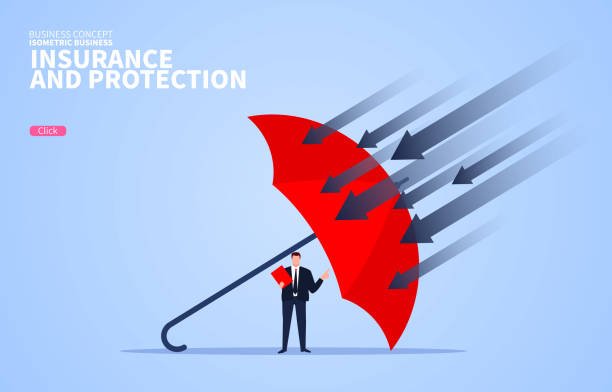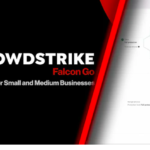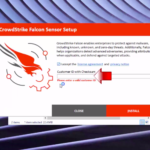In the dynamic world of business, unexpected events can occur at any time, potentially exposing your company to legal liabilities and financial losses. Public liability insurance is a crucial risk management tool designed to safeguard your business against third-party claims arising from bodily injury, property damage, or other damages caused by your operations or products.
This comprehensive article delves into the intricacies of public liability insurance, exploring its significance, key features, and the benefits it offers to businesses of all sizes.
Public Liability Insurance
Public liability insurance, also known as general liability insurance or third-party liability insurance, is a type of insurance policy that provides financial protection for businesses against claims made by members of the public or third parties who have suffered injury, property damage, or other losses as a result of the insured’s business activities or products.
This insurance coverage is particularly important for businesses that interact with customers, clients, or the general public, as it helps mitigate the financial risks associated with potential lawsuits and legal claims.
Features of Public Liability Insurance
Bodily Injury Coverage: Public liability insurance covers claims related to bodily injury sustained by third parties due to your business operations or products. This includes medical expenses, lost wages, and potential legal costs arising from such incidents.
Property Damage Coverage: If your business activities or products cause damage to a third party’s property, public liability insurance will cover the costs of repairing or replacing the damaged property, as well as any associated legal expenses.
Legal Defense Costs: In the event of a covered claim, the insurance policy typically covers the legal costs associated with defending your business against the claim, including attorney fees, court costs, and other related expenses.
Reputation Protection: Public liability insurance can help protect your business’s reputation by providing financial resources to address claims promptly and professionally, minimizing potential damage to your brand and public image.
Importance of Public Liability Insurance for Businesses
Risk Mitigation: Public liability insurance serves as a crucial risk management tool, helping businesses mitigate the financial and legal risks associated with third-party claims. It provides a safety net, ensuring that unexpected incidents do not cripple your business financially.
Legal Compliance: In many industries and jurisdictions, public liability insurance is a legal requirement for businesses to operate. Failing to obtain adequate coverage can result in fines, penalties, or even the suspension of operations.
Credibility and Trust: Having public liability insurance demonstrates your commitment to responsible business practices and instills confidence in your customers, clients, and partners. It shows that you are prepared to handle potential liabilities and prioritize the safety and well-being of others.
Financial Stability: Defending against legal claims and paying for damages can be extremely costly, potentially draining your business’s resources. Public liability insurance ensures that you have the financial means to address claims without jeopardizing your company’s financial stability.
Who Needs Public Liability Insurance?
Public liability insurance is crucial for businesses across various industries and sectors that interact with the public or operate in environments where the risk of third-party injury or property damage is present. Some examples of businesses that typically require public liability insurance include:
- Retail stores and shopping centers
- Restaurants and food service establishments
- Construction and contracting companies
- Manufacturers and product suppliers
- Professional service providers (e.g., consultants, accountants, lawyers)
- Event organizers and venues
- Property management companies
- Leisure and hospitality businesses
Even businesses that operate primarily online or have minimal physical interaction with the public may benefit from public liability insurance, as claims can arise from various sources, such as defective products or services, advertising claims, or intellectual property infringement.
Factors Influencing Public Liability Insurance Premiums
The cost of public liability insurance premiums can vary significantly depending on several factors. Insurance providers consider the following elements when determining premiums:
Industry and Business Type: The nature of your business operations and the associated risks play a crucial role in determining insurance premiums. Industries with higher risks of third-party claims, such as construction or manufacturing, typically face higher premiums.
Business Size and Revenue: Larger businesses with higher revenue streams and more extensive operations may require higher coverage limits, resulting in higher premiums.
Claims History: Your business’s claims history can significantly impact insurance premiums. A track record of fewer claims generally translates to lower premiums, while a history of frequent or costly claims may lead to higher rates.
Coverage Limits and Deductibles: Higher coverage limits and lower deductibles typically result in higher premiums, as they increase the insurance provider’s potential financial exposure.
Risk Management Practices: Businesses that implement robust risk management strategies, such as safety protocols, employee training, and quality control measures, may be eligible for lower premiums, as they demonstrate a commitment to mitigating risks.
Points to Consider When Choosing Public Liability Insurance
When selecting a public liability insurance policy for your business, it is essential to consider the following points:
Coverage Limits: Determine the appropriate coverage limits based on the potential risks associated with your business operations, the size of your company, and the potential costs of legal claims and settlements.
Exclusions and Limitations: Carefully review the policy’s exclusions and limitations to ensure that your specific business activities and potential liabilities are covered.
Additional Coverages: Evaluate the need for additional coverages, such as product liability insurance, professional liability insurance, or employer’s liability insurance, based on the nature of your business and the services or products you offer.
Deductibles and Premiums: Strike a balance between deductibles and premiums to find a policy that aligns with your business’s risk tolerance and financial capabilities.
Insurer’s Reputation and Financial Stability: Research and choose an insurance provider with a solid reputation, financial stability, and a track record of prompt and fair claims handling.
Policy Terms and Conditions: Thoroughly review and understand the policy’s terms and conditions to ensure compliance and avoid potential disputes or coverage gaps.
Public Liability Insurance Coverage and Potential Claims
The following table provides an overview of the types of coverage typically included in public liability insurance policies and examples of potential claims that may be covered:
| Coverage Type | Potential Claims |
|---|---|
| Bodily Injury | Slip and fall accidents on your business premises
Injuries caused by defective products or services Injuries sustained by third parties during events or activities organized by your business |
| Property Damage | Damage to a third party’s property caused by your business operations or employees
Damage to a customer’s vehicle in your business’s parking lot Damage to neighboring properties resulting from your business activities |
| Personal Injury | False arrest or wrongful detention claims
Defamation or libel claims Invasion of privacy claims |
| Advertising Injury | Copyright infringement claims related to advertising materials
Trademark infringement claims Misappropriation of advertising ideas or style of doing business |
| Legal Defense Costs | Attorney fees and court costs associated with defending against covered claims
Expert witness fees Settlement costs |
Frequently Asked Questions (FAQs)
Is public liability insurance mandatory for all businesses?
While public liability insurance is not legally required for all businesses, it is highly recommended, especially for companies that interact with the public or operate in environments where the risk of third-party injury or property damage is present. In some industries and jurisdictions, public liability insurance may be a legal requirement.
What is the difference between public liability insurance and product liability insurance?
Public liability insurance covers claims arising from bodily injury, property damage, or other losses caused by your business operations or activities. Product liability insurance, on the other hand, specifically covers claims related to defective products manufactured, sold, or distributed by your business.
How are public liability insurance premiums calculated?
Public liability insurance premiums are determined based on various factors, including the nature of your business, the level of risk associated with your operations, your company’s size and revenue, claims history, coverage limits, deductibles, and risk management practices.
Can public liability insurance cover claims made by employees?
Public liability insurance typically covers claims made by third parties, such as customers, clients, or members of the public. Claims made by employees are generally covered under a separate policy called employer’s liability insurance or workers’ compensation insurance.
What happens if a claim exceeds the coverage limit of my public liability insurance policy?
If a claim exceeds the coverage limit of your public liability insurance policy, you may be responsible for paying the remaining amount out of your pocket. It is crucial to carefully assess your potential risks and select appropriate coverage limits to minimize the likelihood of exceeding the policy’s limits.
Can public liability insurance protect my business from reputational damage?
While public liability insurance does not directly cover reputational damage, it can help mitigate the impact by providing financial resources to address claims promptly and professionally. This can prevent further escalation and minimize potential damage to your brand and public image.
How often should I review and update my public liability insurance policy?
It is recommended to review and update your public liability insurance policy annually or whenever there are significant changes in your business operations, product offerings, or risk profile. Regular reviews ensure that your coverage remains adequate and aligned with your evolving needs.
Can public liability insurance cover claims related to cyber incidents or data breaches?
Typically, public liability insurance policies do not cover claims related to cyber incidents or data breaches. For such risks, businesses may need to consider purchasing separate cyber liability insurance or data breach insurance policies.
Conclusion
In an increasingly litigious business environment, public liability insurance serves as a vital safety net, protecting your company from the financial and legal consequences of third-party claims. By understanding the importance, key features, and coverage options of public liability insurance, you can make informed decisions to safeguard your business, maintain financial stability, and foster trust with your customers and partners.










